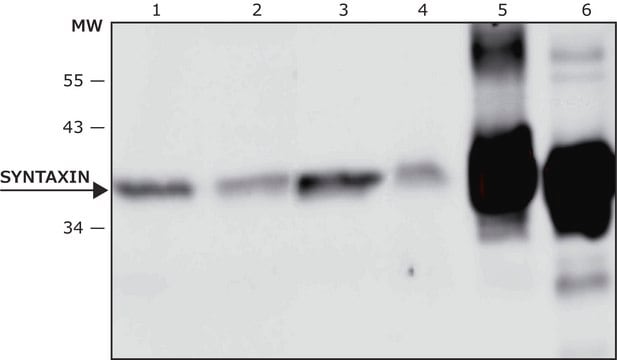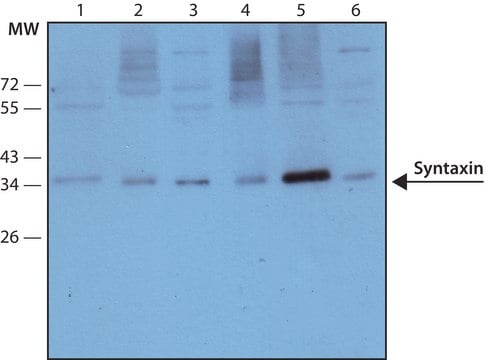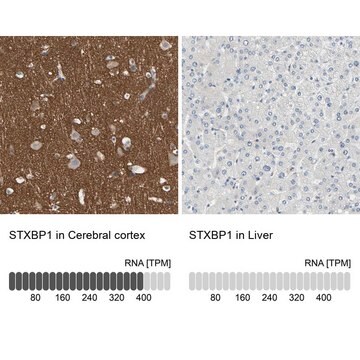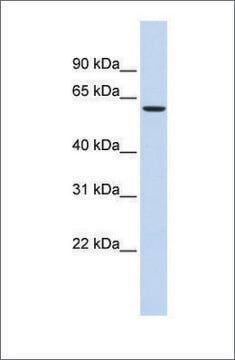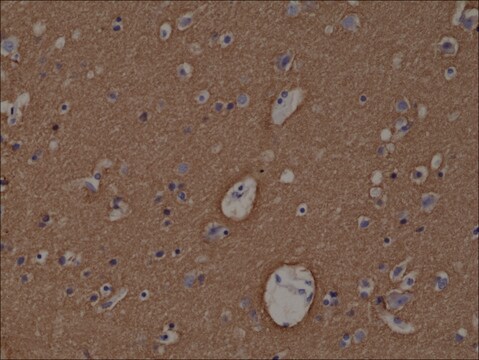S1172
Anti-Syntaxin 1 antibody produced in rabbit
IgG fraction of antiserum, lyophilized powder
Synonym(s):
Anti-GEFSP9, Anti-STX1B1, Anti-STX1B2
About This Item
WB CL
western blot (chemiluminescent): 1:1,000 using rat brain membranes
Recommended Products
biological source
rabbit
Quality Level
conjugate
unconjugated
antibody form
IgG fraction of antiserum
antibody product type
primary antibodies
clone
polyclonal
form
lyophilized powder
species reactivity
mouse, rat
technique(s)
immunohistochemistry: suitable using rat brain sections
western blot (chemiluminescent): 1:1,000 using rat brain membranes
UniProt accession no.
storage temp.
−20°C
Gene Information
mouse ... Stx1a(20907) , Stx1b(56216)
rat ... Stx1a(116470) , Stx1b(24923)
General description
Immunogen
Application
Biochem/physiol Actions
Physical form
Disclaimer
Not finding the right product?
Try our Product Selector Tool.
Signal Word
Warning
Hazard Statements
Precautionary Statements
Hazard Classifications
Acute Tox. 4 Dermal - Acute Tox. 4 Inhalation - Aquatic Chronic 3
Storage Class Code
6.1C - Combustible acute toxic Cat.3 / toxic compounds or compounds which causing chronic effects
WGK
WGK 3
Flash Point(F)
Not applicable
Flash Point(C)
Not applicable
Personal Protective Equipment
Choose from one of the most recent versions:
Already Own This Product?
Find documentation for the products that you have recently purchased in the Document Library.
Our team of scientists has experience in all areas of research including Life Science, Material Science, Chemical Synthesis, Chromatography, Analytical and many others.
Contact Technical Service